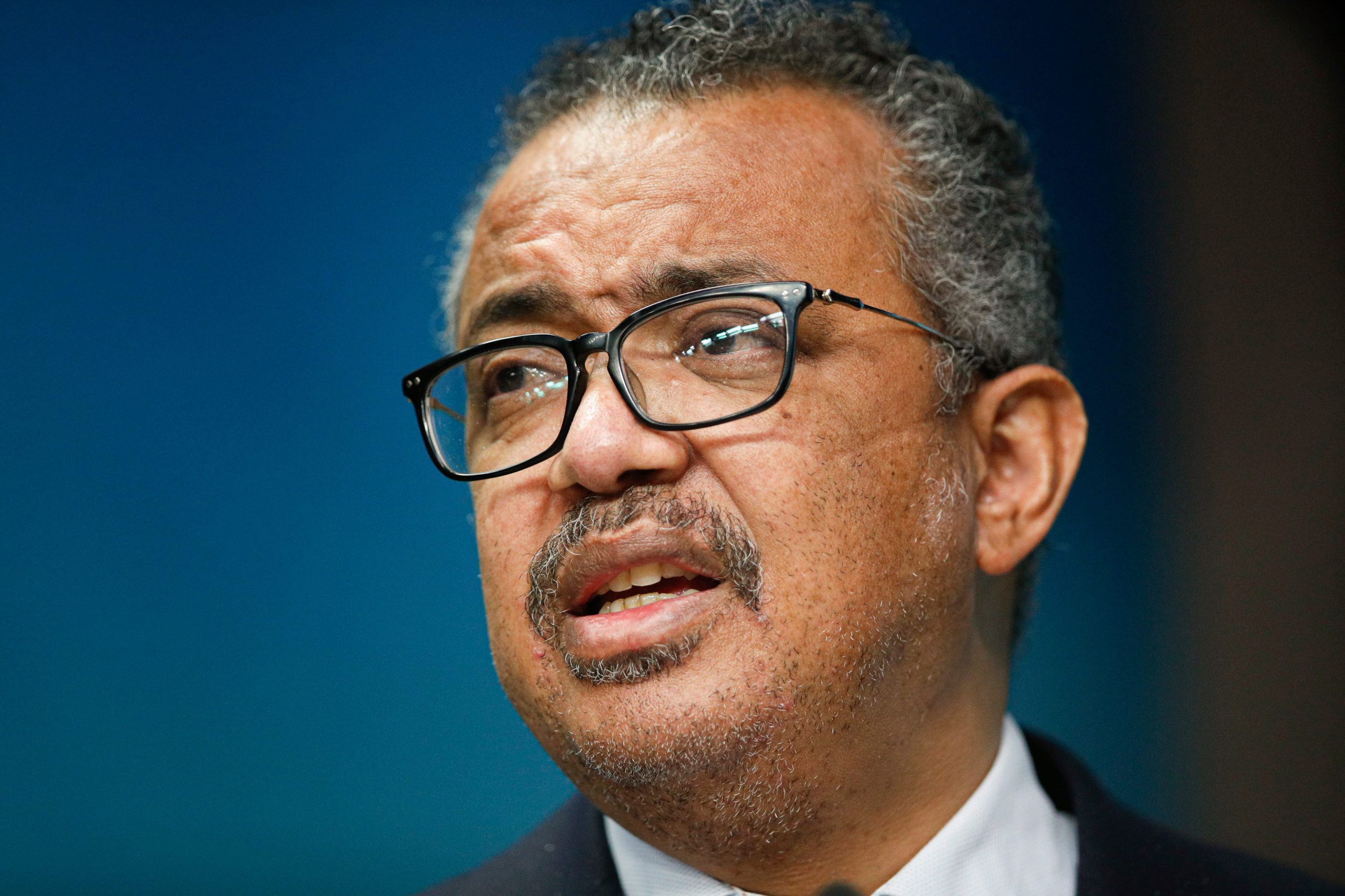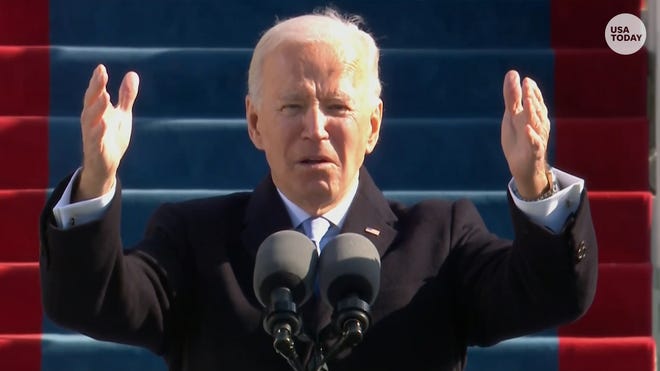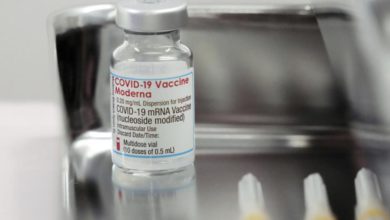

The head of the World Health Organization declared monkeypox a global health emergency on Saturday, an unusual move that comes as nations grapple with a growing number of people sickened by a once isolated virus.
U.N. health agency Director-General Tedros Adhanom Ghebreyesus made the announcement after the WHO's expert committee couldn't reach a consensus on whether to apply the highest level of alert to the virus.
The "global emergency" designation may help spur more investment in combatting the disease amid a scramble for scarce vaccines.
While a global emergency is the organization's highest alert level, it doesn't always mean a disease is highly transmissible or lethal. Similar declarations were made for the Zika virus in 2016 in Latin America and the ongoing effort to eradicate polio, in addition to the COVID-19 pandemic and the 2014 Ebola outbreak in West Africa.
Ghebreyesus made the decision despite a lack of consensus among experts, calling himself “a tiebreaker."
It was the first time a U.N. health agency chief has unilaterally made such a decision without an expert recommendation.
There is "a clear risk of further international spread," Ghebreyesus said in a statement.
"So in short, we have an outbreak that has spread around the world rapidly, through new modes of transmission, about which we understand too little," he said. "... For all of these reasons, I have decided that the global monkeypox outbreak represents a public health emergency of international concern."
However, some experts have argued the disease isn’t severe enough to warrant the attention, in part because most people recover without needing medical attention, although the lesions can be excruciating.
Symptoms of the disease begin to appear seven to 14 days after exposure and include fever, muscle aches, exhaustion and a rash that can appear on the body. So far, monkeypox deaths have only been reported in Africa, where a more dangerous version of the virus is spreading.
A WHO emergency committee decided last month that the outbreak did not at that time represent a public health emergency of international concern, Ghebreyesus said in statement.
At the time, 3,040 monkeypox cases had been reported in 47 countries, he said. Since then, the outbreak has ballooned to more than 16,000 reported cases in more than 70 countries.
On Friday, the U.S. reported its first two cases of monkeypox in children, according to the Centers for Disease Control and Prevention.
GRAPHIC BREAKDOWN:Rising reports of monkeypox cases in US and around the world raise concern
Monkeypox a growing global concern
While the virus has been found in parts of central and west Africa for decades, monkeypox began to spread more widely in May as authorities reported dozens of outbreaks globally.
As a more dangerous version of the virus spreads mainly in Nigeria and the Congo, the only monkeypox deaths as of now have been reported in Africa, where it mainly spreads to people from infected animals such as rodents. However, in Europe, North America and other regions, monkeypox is spreading from human to human without links to animals or travel to Africa.
LGBTQ leaders say more testing kits, vaccines and additional health workers are needed to limit the outbreak, which is primarily affecting gay and bisexual men.
Monkeypox does not exclusively spread through sex, but some experts worry it could soon become an entrenched disease similar to gonorrhea, herpes or HIV.
Informing men who have sex with men about the virus without causing stigma remains a balancing act, because the virus can affect anyone who gets in close contact with monkeypox, regardless of their sexuality.
Monkeypox in US
There have been 2,891 confirmed cases of monkeypox in the U.S. as of Friday, according to the Centers for Disease Control and Prevention. States reporting cases have received 370,000 vaccine doses.
New York has had the most confirmed cases of any state at 900. California, Florida, Georgia and Illinois each have more than 100 cases.
In New York and San Francisco, demand for monkeypox vaccines has been exceeding the supply providers have available.
In Los Angeles, the Department of Public Health offers vaccine by invitation only to people who have a known exposure or are at high risk of one.
The federal government plans to release more than 1.6 million doses of the monkeypox vaccine Jynneos by the end of the year, but demand is so high that the 56,000 doses released in June have almost all been used.
The vaccine protects against monkeypox, but can also be given after exposure to prevent illness, according to the CDC.
Only two U.S. cases have been reported among children, who are described as being in good health and receiving treatment, according to the CDC. How they caught the disease is being investigated, but officials think it was through household transmission.
Older adults who were vaccinated against smallpox as kids, likely have some protection against monkeypox, said Dr. James Lawler, an infectious disease doctor at the University of Nebraska Medical Center.
WHO recommendations
In Saturday's statement, Ghebreyesus stressed that countries like the U.S. experiencing human-to-human spread must try to stop that transmission and protect vulnerable groups.
Identifying cases of monkeypox through testing, and then contact tracing remains key to stopping community spread. Vaccines are also an important strategy.
Like with cases of COVID-19, people who have monkeypox should isolate for as long as they're infectious, the statement said.
Vaccines and proper Personal Protection Equipment (PPE) are also necessary to help prevent spread among health care workers.
Immunosuppressed individuals, children, and people who are pregnant may be at risk of severe monkeypox disease, and therefore should consider vaccines, according to the statement.
Ghebreyesus said anyone experiencing possible monkeypox symptoms or anyone who was in contact with a monkeypox case should avoid all travel until they determine they can do so without possibly spreading the virus.
Experts respond to global emergency declaration
While some experts questioned if the declaration will help, others have pushed for the outbreak to be designated a global emergency, wondering why the WHO hadn't made this decision earlier.
Michael Head, a senior research fellow in global health at Southampton University, said the conditions for declaring monkeypox a global emergency were arguably met weeks ago.
"I think it would be better to be proactive and overreact to the problem instead of waiting to react when it's too late," Head said.
The Human Rights Campaign, an LGBTQ advocacy group, released a statement Saturday saying they "commend" the WHO's decision.
The designation of "global emergency" is "critical to rapidly increase testing capacity and vaccine distribution in order to reach communities most impacted by the virus, particularly gay and bisexual men and transgender women, who comprise the majority of current cases,” said Jay Brown, Human Rights Campaign Senior Vice President of Programs, Research and Training.
Dr. Placide Mbala, a virologist who directs the global health department at Congo's Institute of National Biomedical Research, said efforts to stop monkeypox must be equitable, adding that vaccines should also be sent to Africa, especially targeting those at highest risk, such as hunters in rural areas.
"Vaccination in the West might help stop the outbreak there, but there will still be cases in Africa," he said. "Unless the problem is solved here, the risk to the rest of the world will remain."
Contributing: Boris Q'va, Janet Loehrke, Sara Moniuszko, George Petras and Elizabeth Weise, USA TODAY; The Associated Press
Source link









